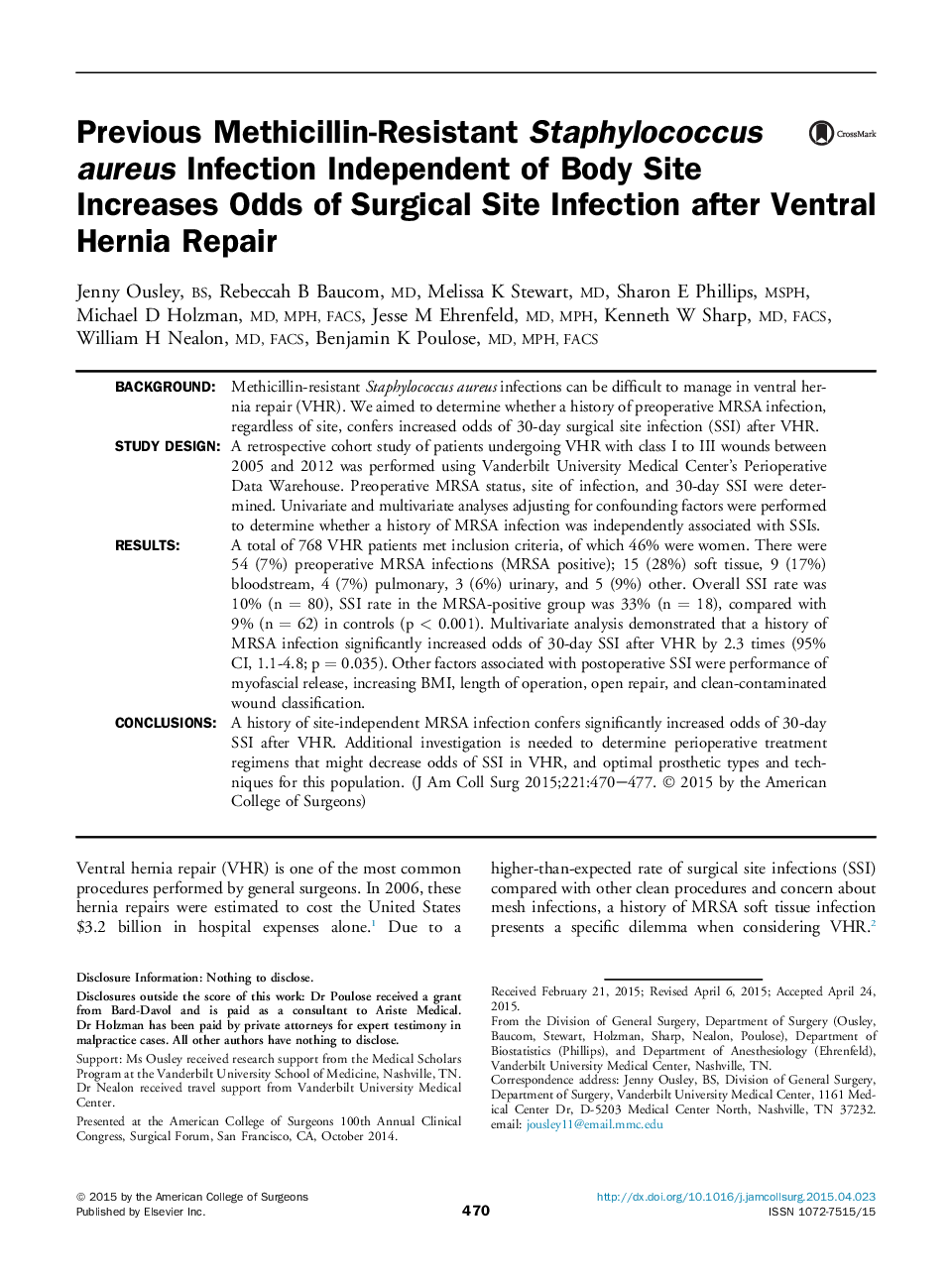| کد مقاله | کد نشریه | سال انتشار | مقاله انگلیسی | نسخه تمام متن |
|---|---|---|---|---|
| 6252645 | 1612217 | 2015 | 8 صفحه PDF | دانلود رایگان |
BackgroundMethicillin-resistant Staphylococcus aureus infections can be difficult to manage in ventral hernia repair (VHR). We aimed to determine whether a history of preoperative MRSA infection, regardless of site, confers increased odds of 30-day surgical site infection (SSI) after VHR.Study DesignA retrospective cohort study of patients undergoing VHR with class I to III wounds between 2005 and 2012 was performed using Vanderbilt University Medical Center's Perioperative Data Warehouse. Preoperative MRSA status, site of infection, and 30-day SSI were determined. Univariate and multivariate analyses adjusting for confounding factors were performed to determine whether a history of MRSA infection was independently associated with SSIs.ResultsA total of 768 VHR patients met inclusion criteria, of which 46% were women. There were 54 (7%) preoperative MRSA infections (MRSA positive); 15 (28%) soft tissue, 9 (17%) bloodstream, 4 (7%) pulmonary, 3 (6%) urinary, and 5 (9%) other. Overall SSI rate was 10% (n = 80), SSI rate in the MRSA-positive group was 33% (n = 18), compared with 9% (n = 62) in controls (p < 0.001). Multivariate analysis demonstrated that a history of MRSA infection significantly increased odds of 30-day SSI after VHR by 2.3 times (95% CI, 1.1-4.8; p = 0.035). Other factors associated with postoperative SSI were performance of myofascial release, increasing BMI, length of operation, open repair, and clean-contaminated wound classification.ConclusionsA history of site-independent MRSA infection confers significantly increased odds of 30-day SSI after VHR. Additional investigation is needed to determine perioperative treatment regimens that might decrease odds of SSI in VHR, and optimal prosthetic types and techniques for this population.
Journal: Journal of the American College of Surgeons - Volume 221, Issue 2, August 2015, Pages 470-477
